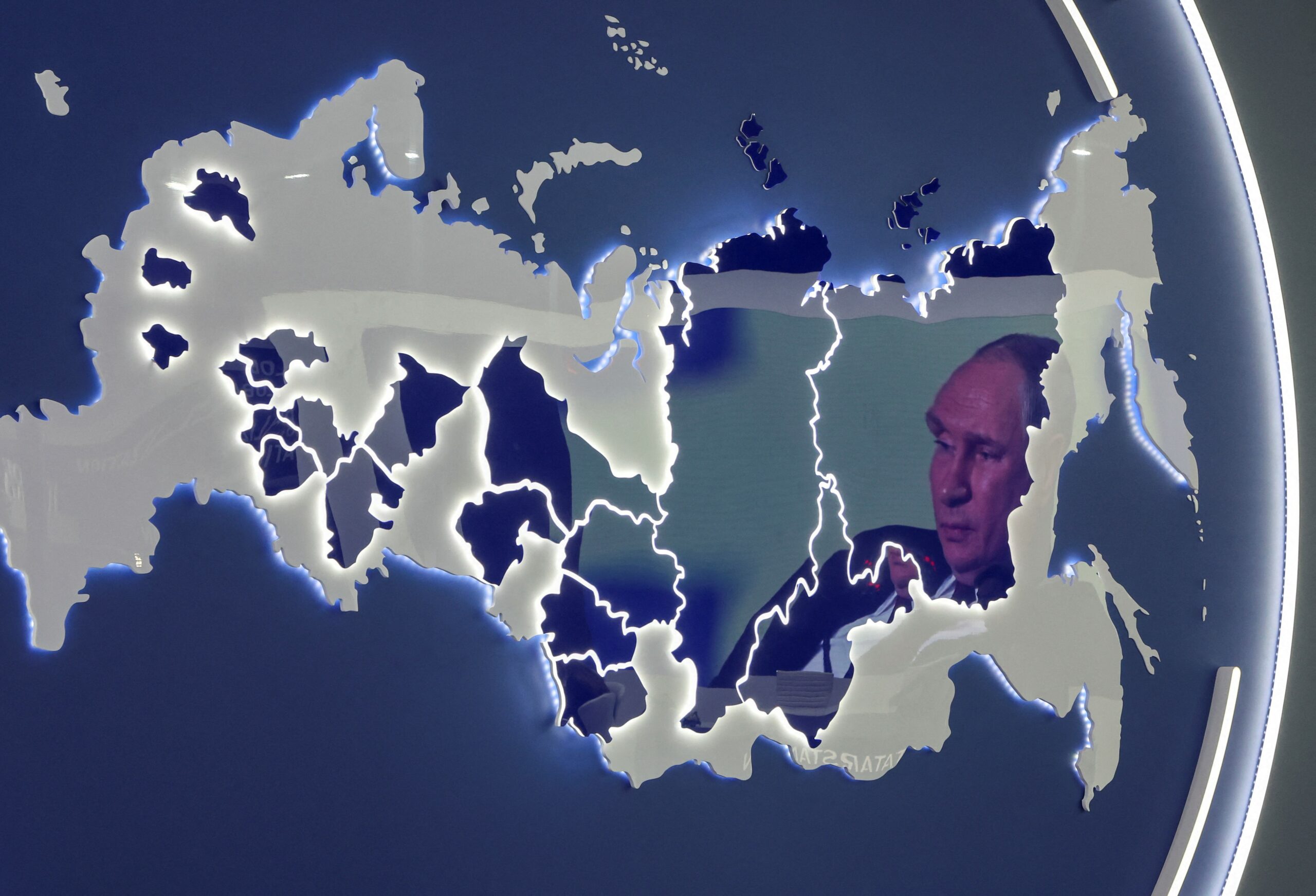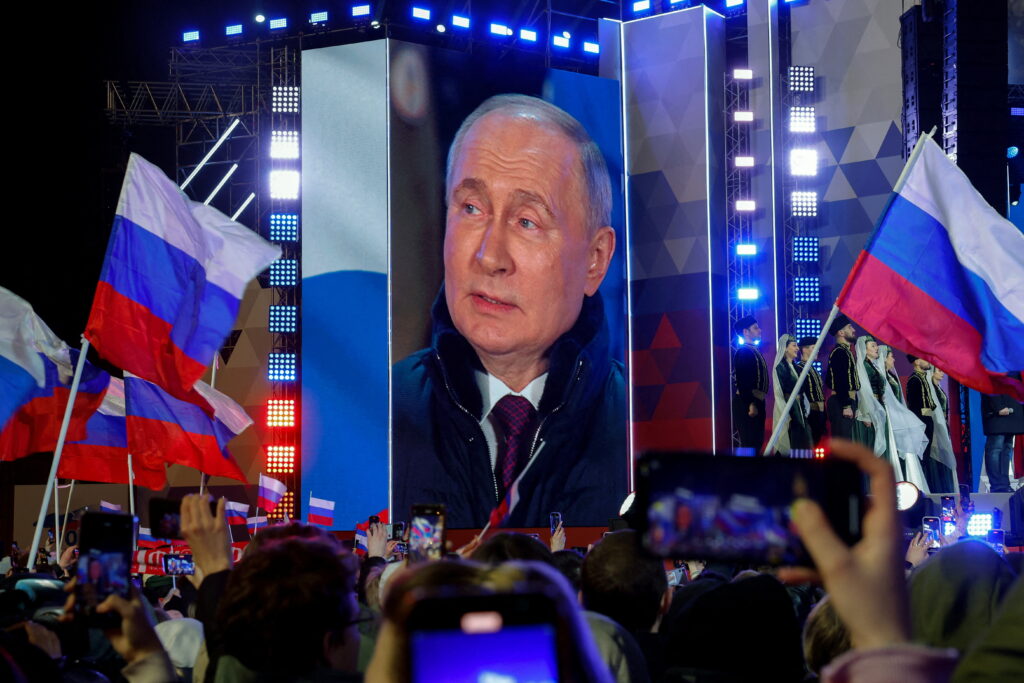In federal states, serious crises create incentives for politicians at national and regional tiers of government to enter institutional bargaining. Much of that can be to shift blame or avoid responsibility. Indeed, in democratic federations in the course of crises (or reforms) federal, regional, and local authorities often try to shift the blame and responsibility to each other for unpopular though necessary measures. Opportunities of this kind do not exist in the same way in unitary states; so oddly enough, one of the advantages of federalism can be how a crisis provides an opportunity to reconsider the balance between the central state and its regions.
Nothing of this kind is happening in the Russian authoritarian federation as the model of center-regional relations does allow bargaining. This model serves the interest of Moscow and what is no less important — Russian governors. Neither the pandemic crisis nor the war has created expectations for this model to be reformed. Moscow’s repertoire remains predictable; so is the reaction of Russian governors.
How the model of Moscow-regional relations works
The very model of center-regional relations in Russia precludes expectations that the contract between these two parties will be revised in favor of the regions. Under this model, governors, deprived of their own legitimacy, not only follow Moscow’s instructions; they also have a personal interest in maintaining the stability of the current regime. And since the stability of the entire political system depends on the popularity of the incumbent, regional politicians are interested in maintaining his rating. In the current system, incentives for regional governors are structured in such a way that they themselves prefer to «turn a shoulder» to Putin when unpopular measures are necessary. The governors will prefer to support Putin’s popularity even at the expense of their own popularity among the population. From their side there is no request for the expansion of autonomy since they do not have to go through the procedure of competitive elections.
This model did not come about spontaneously but was a result of the painstaking work of the Presidential Administration, which included, in particular, the selection of potential governors and their training.
In addition, the condition for the functioning of the model is the practical absence of horizontal ties between governors, at least regarding political cooperation. Each governor works with Moscow one on one, while Moscow carefully monitors that there are no conditions for horizontal coordination between the heads of regions (this is generally a standard trick of an authoritarian regime: to prevent coordination between opposition groups and politicians). In Russia, this coordination is also hindered by geography itself — the huge distances between regional capitals, especially in Siberia and the Far East. Under such conditions any deviation of the governor from the «official line» is tantamount to political suicide.
Don’t expect miracles
In Russia, the COVID-19 crisis has created not only new challenges, but also some optimistic expectations. Experts argued that the Kremlin’s willingness to delegate more responsibilities to governors could mark a turning point from an inefficient «power vertical» to a more efficient federal model. Or at least more decentralized. Many observers explained the delegation of additional powers to the regions by the fact that a highly centralized «power vertical» is ineffective in a real emergency.
These expectations turned out to be completely in vain. In Russia, the regions did not enter any bargaining with Moscow. Virtually all Russian governors (as well as mayors of large cities), instead of trying to demand more support from Moscow or a greater share of budgetary resources, have shown complete loyalty and a willingness to shield Putin from political responsibility for unpopular measures related to the epidemic. There was indeed a blame shifting, but in one direction only — President Putin has publicly accused governors and mayors of the economic cost of excessive restrictions and of failing to ensure public safety. As Mikhail Vinogradov correctly wrote «Covid 2020 did not lead to a serious strengthening of the role of governors. Yes, the heads of regions talked about quarantine restrictions and monitored their observance. But in most cases, the initiators of the measures were the federal authorities, and the regional authorities were only responsible for their implementation. ”
It would be all the naiver to expect a restructuring of relations between Moscow and the regions in favor of the latter after the start of the war. This could never happen at a time when propaganda teaches Russians that «unity» is critically needed in the face of the «existential threat to Russia», and any departure from the official line is equated with betrayal.
Of course, there are many governors in Russia, and they are all different. Some of them would visit those mobilized from their regions and report that «they have a fighting mood», and the «holy war» should continue until complete victory. Others would refrain from commenting. However, no one, not one of the governors will cross the threshold beyond which the Presidential Administration may doubt his loyalty. The governors not only understand, but also feel very well where this threshold is. Even approaching the threshold would be deadly.
Repetition of the repertoire
Theoretically, we can expect the most important threshold limiting Moscow’s «repertoire» in relation to the regions would be the categorical prevention of political decentralization — even in conditions of complete loyalty of the governors, it can be potentially dangerous for Putin. Consequently, during the war, one can expect the repetition of various elements of this poor «repertoire», which were tested earlier, especially during the pandemic.
This is exactly what we are seeing. During the pandemic, Moscow initiated the so-called administrative (least risky) decentralization, transferring additional areas of responsibility to the regions. The same thing happened in the first months after the start of Russian aggression against Ukraine, with Putin’s decree of March 16 «Executive order on measures to ensure socioeconomic stability and protection of the population in Russia». During the pandemic, one of the most important tasks of the governors was the manipulation of information (statistics on the number of infected and dead) — during the war, information about the dead and wounded is being concealed. At the same time, the heads of regions are deprived of the opportunity to influence the military mobilization bloc: the system of military registration and enlistment offices and the bodies of the Ministry of Internal Affairs helping them are not subordinate to the regional authorities.
The occupation of the territories of Ukraine set before Moscow the task of their «development». And here, again, the regions come to the rescue, and Moscow recalled its old repertoire — «patronage assistance» to Crimea and Sevastopol after their annexation in 2014. At that time, the annexed territories were assigned to 16 Russian regions. Now there are more «sponsored regions» — so the tasks are bigger. Regular visits to the occupied territories have become part of the work agenda of many governors, followed by the posting of victorious reports in Telegram channels and local media.
Everything related to the war is an absolutely federal agenda, which the regional authorities cannot influence in any way. I agree with Mikhail Vinogradov when he writes that «everything that concerns the war and related topics descends from the federal level.» But I cannot agree with him that «the omnipotence of the federal center remains in the past, and it will no longer be possible to completely ignore this fact.» This is another expectation of a miracle, and there is no reason to think that it will come true. It suggests the possibility of reforming the model, but there is no evidence of coming reforms. Moreover, the current model is fundamentally unreformable. There are a number of conditions under which it can collapse, but so far, they have not arisen. And in today’s conditions, the governors have no alternative to complete loyalty to Putin and Moscow if they want to politically survive.










